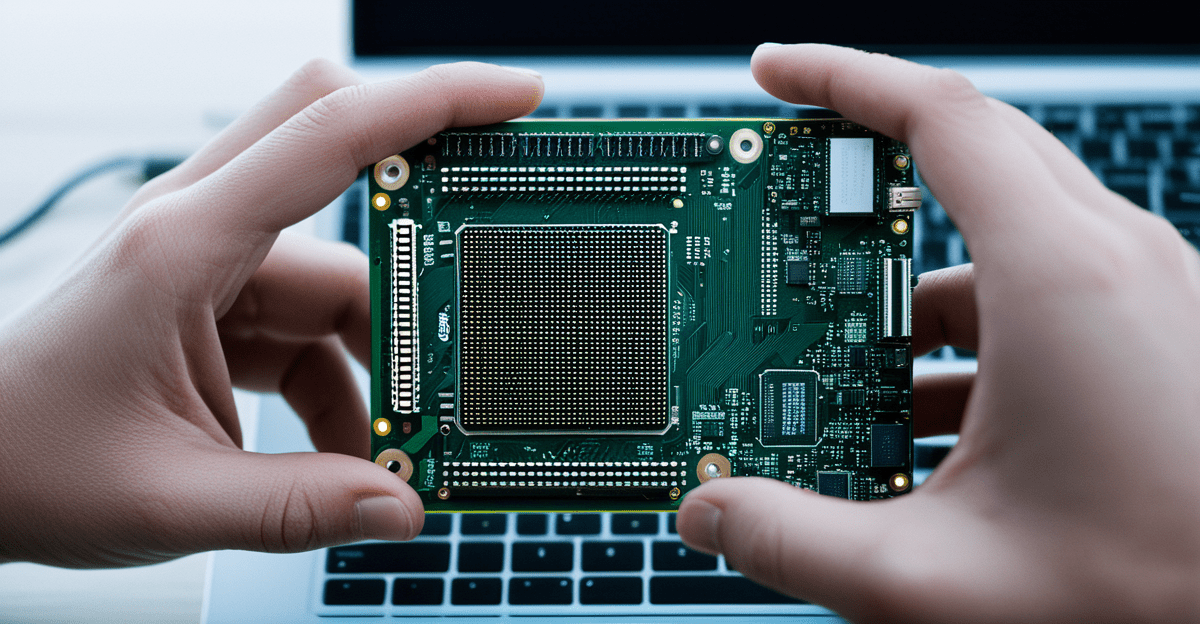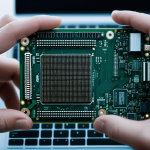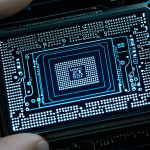Contributions of UK Computing Hardware Providers to Machine Learning
UK computing hardware providers have significantly shaped the machine learning infrastructure landscape by developing advanced solutions tailored specifically to AI workloads. Leading companies in the UK focus on designing and producing hardware such as high-performance processors, GPUs, and AI accelerators that are optimised to meet the demands of machine learning applications. This specialised hardware boosts training speed, improves inference accuracy, and enhances overall system efficiency.
A notable feature of the UK computing hardware ecosystem is the strong collaboration between hardware providers and research institutions. These partnerships facilitate the co-creation of bespoke hardware platforms, enabling experimentation and rapid iteration in AI algorithm development. By integrating academic insights with industry expertise, UK hardware providers contribute not only to cutting-edge machine learning tools but also to the wider innovation ecosystem supporting AI advancements.
Also to discover : How does UK computing hardware influence educational technology solutions?
This synergy strengthens the machine learning infrastructure across public and private sectors, ensuring solutions are scalable, energy-efficient, and compatible with evolving AI needs. As a result, UK hardware providers play a pivotal role in equipping researchers and enterprises with the technology required to harness machine learning effectively.
Contributions of UK Computing Hardware Providers to Machine Learning
UK computing hardware providers play a critical role in advancing machine learning infrastructure. Leading companies in this sector focus on creating hardware tailored specifically for AI and machine learning workloads. This includes developing processors and systems designed to handle the unique demands of training and deploying complex models efficiently.
Also to discover : How Can Emerging Technologies Impact UK Computing Hardware?
One of the strengths of UK hardware providers is their close collaboration with research institutions and universities. These partnerships accelerate innovation by combining academic expertise with practical hardware development. For instance, joint projects often result in customised solutions that improve processing speed and energy efficiency for machine learning tasks.
The machine learning infrastructure supplied by these UK providers supports a variety of applications across industries. Their hardware enables faster data processing, lowers latency, and delivers greater scalability compared to generic computing equipment. Such enhancements are vital for training large models and deploying AI applications in real-time scenarios.
In summary, UK hardware providers not only supply essential components but also foster an ecosystem where machine learning research and practical implementation thrive together. This synergy ensures that the UK remains a key player in developing robust machine learning infrastructure globally.
Innovations in UK Hardware for Machine Learning
UK computing hardware innovation focuses heavily on developing specialised processors, GPUs, and AI accelerators designed specifically for machine learning workloads. These innovations are critical because conventional hardware often lacks the optimisation needed for complex AI tasks. By prioritising performance and energy efficiency, hardware providers in the UK contribute to cutting-edge advancements that enhance training times and inference accuracy.
One breakthrough involves AI accelerators tailored to reduce power consumption while maintaining high throughput for deep learning models. For example, UK firms have developed advanced processors that leverage custom architectures, enabling faster matrix computations and parallel processing essential for machine learning algorithms. This progress is crucial in making large-scale AI applications more sustainable and cost-effective.
The influence of this homegrown hardware innovation extends beyond product development. It strengthens the UK machine learning infrastructure by fostering competitive environments where researchers and enterprises have access to high-performance, scalable hardware solutions. Through persistent collaboration between hardware providers and AI innovators, the UK continues to position itself at the forefront of technological advancement within machine learning hardware innovation.
Innovations in UK Hardware for Machine Learning
UK computing hardware providers lead in hardware innovation UK, focusing on specialised processors, GPUs, and AI accelerators designed specifically for machine learning workloads. These innovations support faster training cycles, lower latency during inference, and reduced energy consumption—critical for efficient machine learning infrastructure. For example, UK firms have developed cutting-edge AI accelerators that enable parallel processing of complex models, improving throughput without significantly increasing power usage.
Performance breakthroughs stem from integrating customised architectures that optimise both compute capability and memory access patterns. This results in processors that balance raw speed with energy efficiency, benefiting machine learning applications requiring high computational density. UK hardware innovation often prioritises scalability to handle expanding dataset sizes and model complexity in AI research and enterprise.
Collaborations between UK hardware providers and research institutions foster iterative improvements. These partnerships produce tailored solutions that push boundaries in machine learning infrastructure, driving national competitiveness. By advancing AI accelerators and advanced processors, UK innovation nurtures an environment where both academic and industrial machine learning goals can be met effectively. Such efforts underscore the UK’s vital role in shaping next-generation hardware for AI technology.
Contributions of UK Computing Hardware Providers to Machine Learning
UK computing hardware providers such as Arm, Graphcore, and Cambridge Quantum play a pivotal role in advancing machine learning infrastructure. These companies specialise in designing hardware tailored for AI workloads, focusing on processors, GPUs, and custom accelerators optimised for training and inference efficiency. For instance, Graphcore’s Intelligence Processing Unit (IPU) architecture enables faster parallel processing, reducing training times for complex models.
Collaboration between hardware providers and UK research institutions is a cornerstone of innovation. This synergy drives development cycles, combining academic insights with industry expertise to create bespoke solutions that address specific machine learning challenges. Universities often partner on projects that test novel algorithms using prototype hardware, accelerating practical adoption.
The emphasis on co-creation ensures that hardware providers deliver products aligned with evolving AI requirements, such as energy efficiency and scalability. By integrating robust machine learning infrastructure with high-performance computing capabilities, UK hardware firms empower researchers and companies to develop sophisticated AI applications efficiently, cementing the UK’s status as a leader in AI hardware development.
Contributions of UK Computing Hardware Providers to Machine Learning
UK computing hardware providers have established themselves as crucial contributors to the development of machine learning infrastructure by focusing on designing hardware optimised specifically for AI workloads. Leading UK companies specialise in high-performance processors, GPUs, and AI accelerators tailored to enhance both training and inference phases of machine learning. These providers leverage their expertise to create energy-efficient, scalable hardware solutions that address the growing complexities of AI models.
Collaboration is a defining characteristic of the UK hardware ecosystem. Providers actively partner with research institutions and universities to co-develop customised platforms that accelerate AI experimentation and innovation. This synergy enables rapid iteration of algorithms alongside hardware advancements, ensuring that machine learning infrastructure evolves in tandem with academic and commercial needs.
Moreover, UK hardware providers contribute to a competitive environment, delivering bespoke solutions that improve processing speeds and reduce latency across various sectors. By combining hardware innovation UK with strategic alliances, these companies strengthen the foundation on which diverse machine learning applications operate, reinforcing the UK’s role in global AI development.
Contributions of UK Computing Hardware Providers to Machine Learning
UK computing hardware providers such as Arm, Graphcore, and others are central to advancing machine learning infrastructure through their focus on bespoke hardware solutions specifically designed for AI workloads. These providers develop specialised processors, GPUs, and AI accelerators that enhance training speeds and inference precision. For example, Graphcore’s IPU architecture optimises parallel processing, significantly reducing model training times compared to generic hardware.
A critical aspect of UK hardware providers’ success is their close collaboration with research institutions. This partnership enables the co-creation of customised hardware platforms tailored to the specific needs of machine learning algorithms. Universities contribute fresh academic insights while hardware firms translate these into practical implementations, fostering innovation cycles that accelerate deployment.
Moreover, hardware providers focus on integrating scalability and energy efficiency into their products to address the evolving demands of machine learning infrastructure. This ensures that solutions remain performant even as dataset sizes grow and models become more complex. By combining cutting-edge hardware with collaborative research, UK computing hardware suppliers are instrumental in strengthening the country’s machine learning capabilities on a global scale.
Contributions of UK Computing Hardware Providers to Machine Learning
UK computing hardware providers such as Arm, Graphcore, and Cambridge Quantum are central to advancing machine learning infrastructure by producing specialised hardware tailored for AI workloads. These companies develop processors, GPUs, and custom AI accelerators that optimise both training and inference phases, significantly improving processing speed and energy efficiency. For example, Graphcore’s Intelligence Processing Unit (IPU) enables highly parallel computations, accelerating complex model training times.
Collaboration is fundamental in the UK ecosystem. Hardware providers actively partner with universities and research institutions to co-create bespoke platforms designed for evolving machine learning needs. This synergy fosters rapid hardware and algorithmic innovation, ensuring that machine learning infrastructure remains cutting-edge and scalable.
Such partnerships also guarantee that hardware development aligns with academic research and industrial applications, merging theoretical insights with practical deployment. Consequently, UK hardware providers not only deliver robust components but also nurture a dynamic innovation environment, cementing the nation’s crucial role in shaping global AI hardware technology. This cooperative model underscores the strength and adaptability of UK computing hardware in supporting diverse machine learning projects.
Contributions of UK Computing Hardware Providers to Machine Learning
UK computing hardware providers such as Arm and Graphcore lead the charge in delivering hardware tailored specifically for machine learning workloads. These companies develop specialised processors, GPUs, and AI accelerators that significantly enhance training speed and inference accuracy. Their designs prioritise energy efficiency and scalability, which are essential to support growing model complexities and dataset sizes intrinsic to advanced AI applications.
A defining strength of these hardware providers is their close collaboration with academic and research institutions across the UK. This partnership model enables co-development of customised platforms, combining deep theoretical insights with practical hardware engineering. Universities contribute algorithmic innovations while hardware providers focus on implementing these optimally in silicon—creating a dynamic feedback loop that accelerates progress in machine learning infrastructure.
Such collaborative efforts ensure that UK computing hardware solutions remain at the forefront of technology, adaptable to emerging AI workloads and capable of meeting the diverse needs of industries and researchers alike. By integrating innovation with pragmatic performance targets, UK hardware providers are central to building a robust ecosystem that underpins the nation’s leadership in machine learning development globally.
Contributions of UK Computing Hardware Providers to Machine Learning
UK computing hardware providers such as Arm, Graphcore, and Cambridge Quantum are essential to developing machine learning infrastructure by engineering specialised hardware designed specifically for AI workloads. These hardware providers create advanced processors, GPUs, and AI accelerators optimised to accelerate both training and inference phases, enhancing computational speed and energy efficiency significantly. For example, Graphcore’s Intelligence Processing Unit (IPU) architecture supports parallel processing that reduces training times for complex models dramatically.
The collaboration between hardware providers and UK research institutions is a defining feature of this ecosystem. This partnership allows co-development of bespoke platforms tailored to meet the nuanced demands of machine learning algorithms. By integrating academic innovations with hardware capabilities, UK computing hardware firms deliver solutions that align precisely with emerging AI needs.
Such cooperation promotes scalability and adaptability within the machine learning infrastructure, ensuring the hardware remains effective as datasets and model complexity grow. UK computing hardware providers thus support a dynamic environment where research fosters practical hardware advances, boosting the UK’s competitive stature in global AI hardware innovation.
Contributions of UK Computing Hardware Providers to Machine Learning
UK computing hardware providers such as Arm, Graphcore, and others specialise in developing bespoke hardware designed explicitly for machine learning infrastructure. These companies engineer advanced processors, GPUs, and AI accelerators that optimise the performance of AI workloads, enhancing both training speed and inference accuracy. A key emphasis lies in energy efficiency and scalability, ensuring that hardware solutions scale seamlessly alongside growing model complexities and data volumes.
Collaboration between hardware providers and UK research institutions is a defining feature of this sector. Joint efforts combine academic research with practical hardware development, enabling bespoke platforms that precisely meet machine learning demands. Such partnerships fuel innovation by accelerating the translation of theoretical advances into hardware optimisations, thus driving progress in AI technology implementation.
The synergy between UK computing hardware companies and research bodies fosters a dynamic ecosystem capable of addressing diverse AI challenges. This ecosystem ensures machine learning infrastructure evolves responsively to evolving needs, maintaining the UK’s position as a frontrunner in developing cutting-edge hardware for machine learning applications. Through these collaborative and specialised initiatives, UK hardware providers deliver solutions critical for powering advanced AI at scale.











